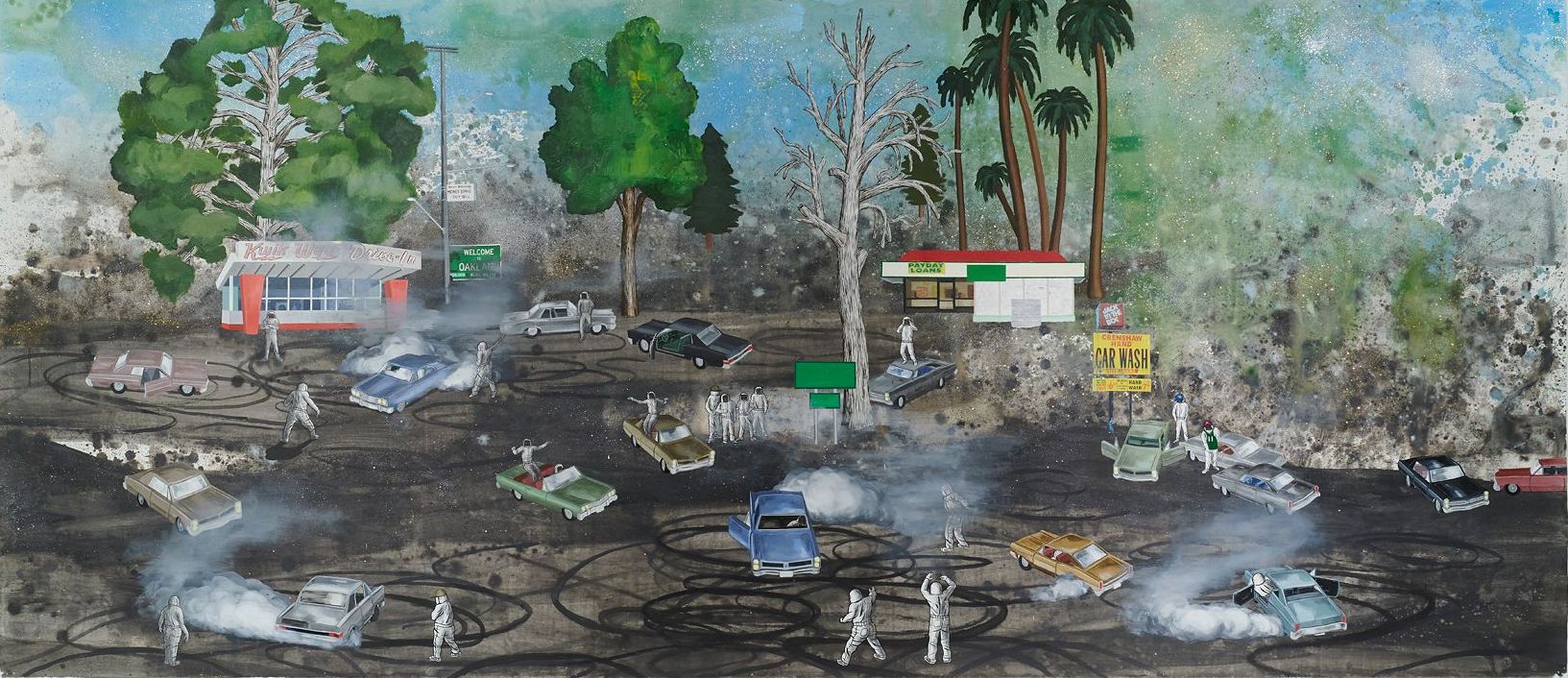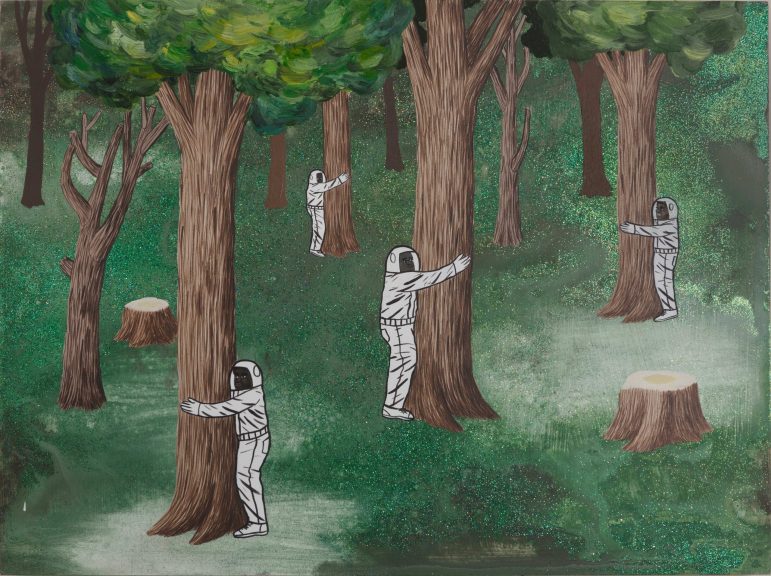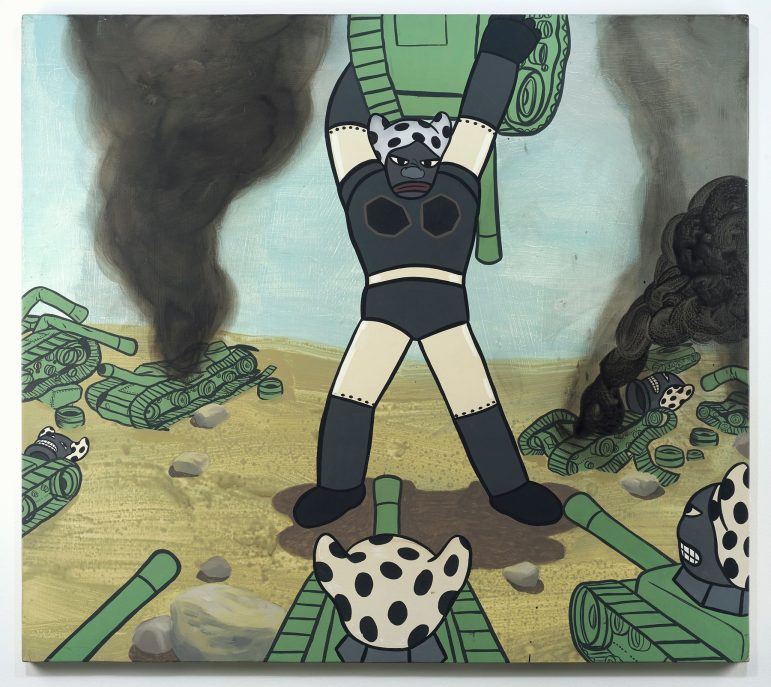The astronaut suit at the entrance of David Huffman’s show “Terra Incognita,” on view until Sept. 18 at the Museum of the African Diaspora, is the first clue that we aren’t in San Francisco anymore. We’re in the land of the Traumanauts, Huffman’s signature Black space travelers searching for a place to call home. They’re on a surreal trip, making stops at an Oakland sideshow, shooting baskets in a random court and playing guitar in an abstract void.
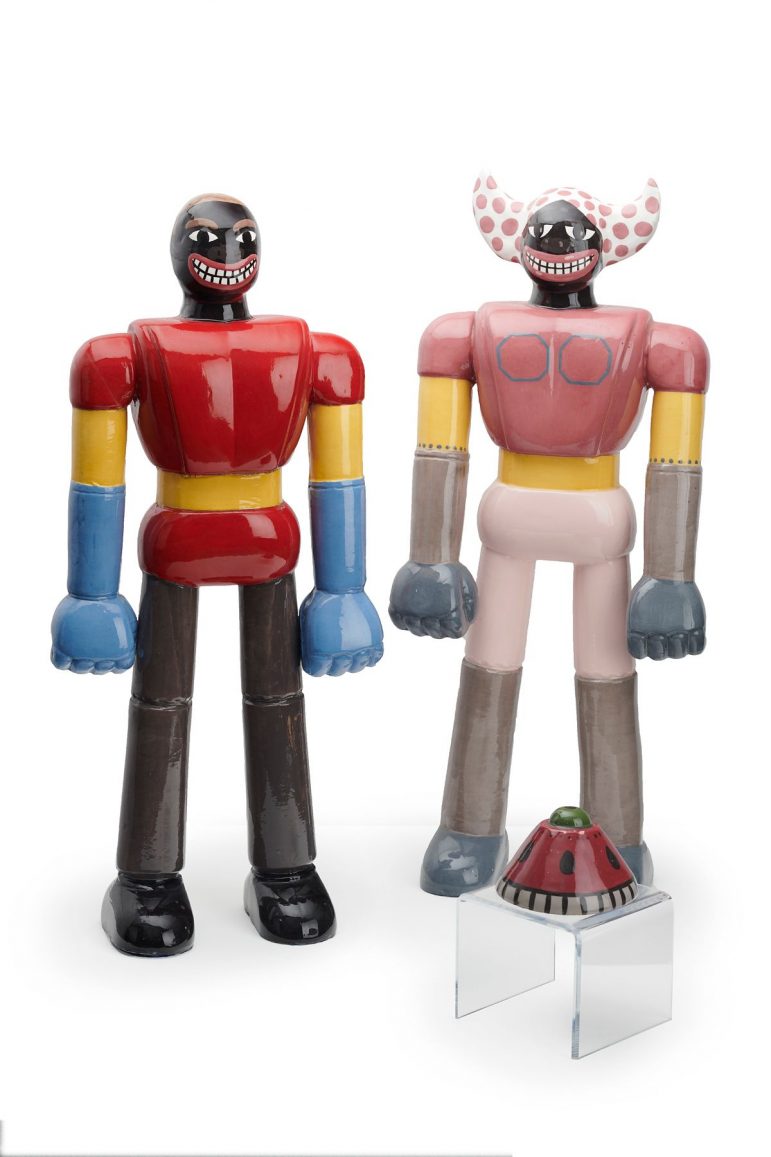
What’s going on here? Where did the Traumanauts come from? And do they ever settle down, pull off their helmets and say, “Mission accomplished”?
With this survey of the Oakland artist’s work spanning three decades, MoAD tries to answer these questions. But with his ties to science fiction and social and ecological justice, the Berkeley-born artist seems to suggest that the journey is ever-changing and eternal. It’s triumphant in one moment, and painful in the next.
Elena Gross, MoAD director of exhibitions and curatorial affairs, says it best: “It’s a narrative that has been developing over decades, and we wanted to be able to bring that narrative in all of its complexities to MoAD.”
The show features a range of media, including several large-scale canvases, works on paper, ceramics and video. Huffman’s 1999 ceramic sculptures of Luxor DX and TraumaEve set the tone. The figures wear a disturbing “traumasmile,” defined as “a survival gesture in response to acts of intentional and institutional anti-Black racism.”
Standing beside their watermelon-themed UFO, Luxor DX and TraumaEve transport us to the era of minstrelsy, when white people wore blackface and played the fool. Then, Luxor DX and TraumaEve start to evolve. Their emotions grow. In one 2005 painting, TraumaEve angrily hurls a tank at her likeness as smoke rises around her. These “Traumanaut” characters became regular fixtures in Huffman’s work in 2005, representing Black people on a journey through strange, unsettling and unpredictable worlds.
“Terra Incognita” has a “Twilight Zone” appeal that is enhanced by eerie sounds that pulse through the space. The sounds lead viewers to a nearby screening room, where Huffman’s 2009 video, “Treehugger” is playing on a loop. Huffman shot the video after seeing trees marked for cutting during a trip to the Sierra Nevada. He put on his NASA space suit (the same suit on display at the show) and filmed himself walking around hugging trees, Huffman’s publicist Nina Sazevich says, describing a recent conversation she had with the artist about the work.
The video feels like saying goodbye to a loved one whom you wish you had more time with. There’s a dystopian feel to it — like with the Traumanauts — being from Earth but not of it, Sazevich explains. It speaks to ecological trauma — how we are all visitors here and not very good caretakers of the planet.
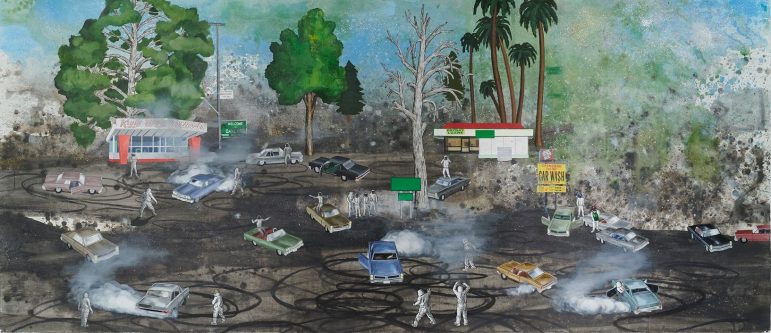
MoAD intended to open the show in March 2020, Gross says. “But now, in March/April 2022, it feels especially important because the Traumanauts remind us of what collectivity, connection and mutual care mean today,” she says. “In the face of a national reckoning with anti-Black racism and a global pandemic, the Traumanauts provide a balm and a guide through these troubling circumstances we find ourselves in.”
“David Huffman: Terra Incognita” runs through Sept. 18 at Museum of the African Diaspora, 685 Mission St., San Francisco. The museum is open 11 a.m.-6 p.m. Wednesdays-Saturdays and 11 a.m.-5 p.m. Sundays. Tickets are $12 for general admission, $6 for seniors, students and educators, and free for youth under 12. For more information, visit https://www.moadsf.org/.
